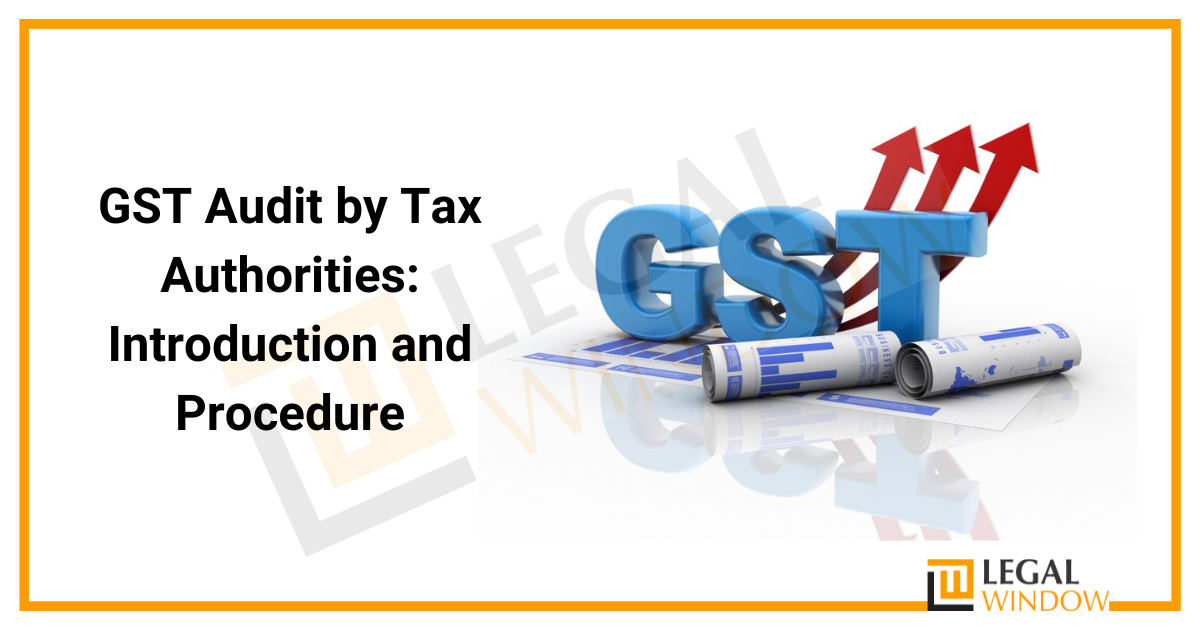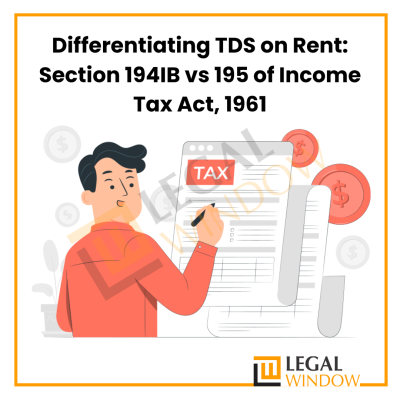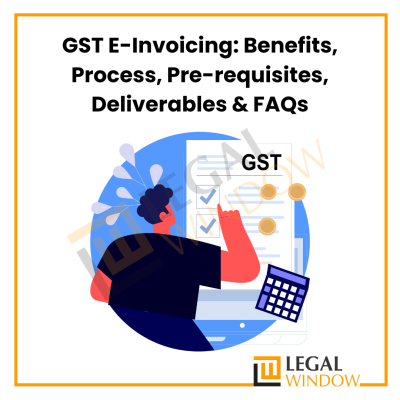 Audit by departmental authorities is a familiar concept. It already existed within the laws that existed even before the GST tax regime was introduced. However, the GST regime encouraged the concept of relying on self-compliance and self-assessment by the taxpayers.
Audit by departmental authorities is a familiar concept. It already existed within the laws that existed even before the GST tax regime was introduced. However, the GST regime encouraged the concept of relying on self-compliance and self-assessment by the taxpayers.
The purpose of the introduction of self-assessment by the GST regime was to ensure and promote compliance with the law by taxable individuals. mechanism of Audit had been introduced under the GST Act.
The GST law provides three types of Audits;
The first audit is conducted by a Chartered Accountant or a Cost Accountant, the Second audit, which is also known as a, Special Audit is conducted by a nominated Cost accountant or Chartered Accountant, and the Third Audit is an Audit by Tax Authorities.
Audit by Tax Authorities is considered the most important Audit. This Article briefly discusses the meaning and procedure of Audit by Tax Authorities.
Abstract
Audit under GST is the procedure for examining returns, records, and other relevant documents that are maintained by taxable individuals. The purpose of an Audit is to verify the truthfulness of declared turnover, specify payment of taxes, input tax credit availed and refund claimed, and for assessing compliance with the provisions of GST.
Under GST, the Audits by tax authorities are conducted by the Commissioner of CGST or any other officer authorized by such Commissioner.
Before conducting an Audit, the Commissioner would send a notice to the taxpayer that is required to be audited at least 15 days before such Audit.
The provisions state that such an audit needs to be completed within three months from the commencement of such an audit.
Although, the Commissioner can extend the period of audit for a duration of a maximum of six months. But the Commissioner would be required to record reasons in writing before extending the period of audit.
Meaning of Audit
The term Audits defined within section 2(13) of the Central Goods and Services Tax Act (CGST), 2017. Audit u/s 2(13) is defined as the examination of returns, records, and other relevant documents that are maintained by the registered persons.
Such examination is done for the verification of the truthfulness of declared turnover, reflected payment of taxes, input tax credit availed, refund claimed, and for assessing if such taxpayer is complying with the provisions of the GST Act or not.
Types of GST Audit
Audits under GST are of three types;
- By a Chartered Accountant/Cost Accountant: Every registered person with an aggregate turnover exceeding two crore rupees during a financial year is required to get the audit of their accounts by a cost accountant or a chartered accountant. Along with it they have to provide the CA, with a copy of a reconciliation statement and audited annual accounts that are duly certified through the FORM GSTR-9C. As per the outcome of43rd Council meeting under GST, GSTR-9 was declared to continue to be an alternative for the taxpayers that have an aggregate turnover of up to Rs. 2 crores for the financial year.
Whereas for the taxpayers that have a turnover of equal to or less than Rs. 5 crores, GSTR-9C would be used to self-certify. These regulations came into force from Financial Year (FY) 2020-21 onwards. - Audit by Tax Authorities: A GST audit of a taxpayer may be conducted by the Commissioner appointed under GST or any such official that is authorized by such commissioner. This type of Audit is done for businesses that have a turnover of more than Rs 2 Crore. Such audits take place at the place where such taxpayer carries their business or at the office of the authorized Commissioner.
- Special Audit: Under Special Audits, registered persons are directed to furnish the records of such books of account which are audited and examined by a cost accountant or a chartered accountant during any stage of inquiry, scrutiny, investigation, or any other miscellaneous proceedings. However, such calling of records depends upon the case. It is to be noted that none of these audits are exclusive mutually and under some specific circumstances some of the registered individuals may be subjected to more than one type of audit at the same time.
Purpose of GST Audit
The main objectives of audit under GST by Tax Authorities can be observed as under
- For increasing the level of compliance of a person that is taxable according to the provision of the rules and act,
- For discovering liabilities by error, omission, or deliberate deception,
- For increasing voluntary compliance of the taxpayers and to facilitate the administration of tax to reach to its aim of securing ‘Right tax at the Right time.
Provision of Audit by Tax Authority
Rule 101 and Section 65 of the GST Act provide the procedure by which audits are conducted, authorities of audit, responsibilities of the registered person, powers and functions of the proper officer, and the necessary actions to be taken at the completion of an audit.
Audit Authorities
On the basis of revenue risk, the department selects the registered person for audit. However, it is not compulsory to conduct an audit of each registered person for every tax period.
Several cases are put liable for audit when any possible default is found from other processes discharged under the GST Act like scrutiny of returns.
Commissioner or any other authorized officer conducts an audit. Accordingly, a proper officer is authorized by the department for conducting an audit of registered persons that are selected.
Notice for Conducting Audit
Section 65(3) and Rule 101(2)regulate the provision for the issue of notice by the proper officer to conduct an audit. These two provisions provide that such an audit must be accordingly mentioned within the FORM GST ADT 01.
Along with it, this provision also states that the date and period of the audit and books of accounts documents required for audit must be intimidated through the notice.
Such notice must be issued at least 15 days before such an audit is conducted. And if the person does not comply with such notice, then it may be presumed that the taxpayer does not hold possession of records and books of accounts. Further, such taxpayers would be held liable to penalties according to sections 122 and 125 of the Act.
Duties of Taxpayer
Registered persons are required to facilitate the proper officers with valid books of accounts and other relevantly required documents for verification during the Audit.
The taxpayers are also on duty to render assistance and provide the required information for the audit to be completed on time.
Duration of Audit
According to Section 65(4) – The audit must be completed within 3 months of its commencement. However, the Commissioner can extend the period of audit for the next 6 months if not satisfied that such an audit would be duly completed within three months.
While such extension, the Commissioner will have to record the reasons for such extension in writing.
Period Covered under Audit
Rule 101(1) of the Act provides that the period of audit would be a financial year or a part of it. Therefore, an Audit can be conducted for any tax period, if such a period is relevantly mentioned in the notice.
Place of Audit
Section 65(2) of the Act makes it clear that an Audit can be conducted either at;
- The place of business of the Registered Person, or
- In the office of the authorized officer
Access to Premises
Section 71 of the Act specifies that proper officers who are authorized shall have the power to access the registered person’s place of business for inspecting documents, books of accounts, and virtual records for the purpose to carry out the Audit in accordance with section 65 of the Act.
Preparation prior to the Audit
According to the scope of the audit, taxpayers after receiving notice of the upcoming audit shall prepare and organize their books of accounts, documents, and statements.
Section 35 provides for records that the registered person is required to maintain. Secondly, as per section 71 report for the audit is also required to be made available by such a registered person.
Documents demanded verification
In view of the above, the following account is required to be organized along with other relevant documents and statements, audit report and annual return, and return copies;
- The stock of goods,
- Inward and outward supply,
- Production or manufacture of goods,
- Such other applicable records are provided under rules 56, 57, and 58,
- Output tax paid and payable,
- ITC availed
Record and Reports required
Section 71(2) makes it obligatory for the registered persons to produce several reports and record them to the proper officer that is authorized for the audit. Some of those records can be observed as follows;
- Such records are maintained and prepared by the registered person and declared to the authorized proper officer
- Statement of duly audited annual financial accounts,
- The income tax audit report,
- Cost audit report (CAR),
- Trial balance and its equivalent, and
- Any other relevant record
Examination of Records by Authorized Proper Officer
During the audit, authorized proper officers may examine certain reports and records, and books of accounts of the taxpayer.
Rule 100(3) provides the procedure for conducting the audit. In accordance with the rule, the authorized proper officer has to verify the following;
- Refund claimed,
- Rate of tax that is applicable on supply,
- The documents relying on which the books of accounts are maintained
- Documents according to which returns and statements are furnished
- Correctness of turnover,
- Cross-checking of exemption and deductions claimed,
- ITC availed and utilized,
- Tax paid, and
- Examining other such relevant matters
The proper officer also has to assess compliance with the provisions of the act and rules by the taxpayer. During the audit, the proper officer shall scrutinize into defaults if there are any wrong availment of ITC, short payment of taxes, or refund that is erroneously granted.
Intimation of Noticed Discrepancies
During the audit, the authorized proper officer must notice if there are any discrepancies. According to Rule 101(4) – The authorized proper officer must examine and intimate discrepancies to the registered person that are observed during the audit. After which the proper officer must consider his reply over the matter and then finalize the findings of the audit.
Intimation of Findings of Audit
Section 65(6) of the Act and Rule 101(5) provide that the proper officer should inform the registered person of his obligation and responsibilities, the findings of the audit, and the reason for each finding.
This intimation must be done after the completion of the audit within 30 days from such completion. And the proper officer shall communicate such information through FORM GST ADT 02.
Audit Report
Section 65 defines an Audit report. AR (Audit Reports) include details of discrepancies and short payment of tax, interest, liability, and penalties that the taxpayers need to duly discharge.
However, in case the registered person fails to take any corrective action as is suggested by the notice and unpaid/short-paid taxes, ITC wrongly availed/utilized, or any erroneously granted refund is detected in the audit then the authorized proper officer may take penal action according to section 73 or 74 of the Act. Such actions may also result in passing adjudication orders against the such taxpayer.
 Conclusion
Conclusion
GST Audit by tax authorities is an important instrument for verifying the truthfulness of declared and provides returns. This not only verifies the correctness of documents/statements but also helps in promoting self-assessment of tax and compliance by the registered persons.
It can be considered as a re-assessment of the self-assessment that is done by the taxpayers. The aim of this type of audit is to increase the tax compliance level of the registered persons.
Therefore, the GST Audit by Tax Authorities has great significance in the GST law implementation and for the benefit of the transparent tax system and balanced economy of the country.
CA Pulkit Goyal, is a fellow member of the Institute of Chartered Accountants of India (ICAI) having 10 years of experience in the profession of Chartered Accountancy and thorough understanding of the corporate as well as non-corporate entities taxation system. His core area of practice is foreign company taxation which has given him an edge in analytical thinking & executing assignments with a unique perspective. He has worked as a consultant with professionally managed corporates. He has experience of writing in different areas and keep at pace with the latest changes and analyze the different implications of various provisions of the act.
Categories
- Agreement Drafting (23)
- Annual Compliance (11)
- Change in Business (36)
- Company Law (148)
- Compliance (90)
- Digital Banking (3)
- Drug License (3)
- FEMA (17)
- Finance Company (42)
- Foreign Taxation (6)
- FSSAI License/Registration (14)
- GST (120)
- Hallmark Registration (1)
- Income Tax (202)
- Latest News (34)
- Miscellaneous (165)
- NBFC Registration (8)
- NGO (14)
- SEBI Registration (6)
- Section 8 Company (7)
- Start and manage a business (21)
- Startup/ Registration (130)
- Trademark Registration/IPR (40)
Recent Posts
About us
LegalWindow.in is a professional technology driven platform of multidisciplined experts like CA/CS/Lawyers spanning with an aim to provide concrete solution to individuals, start-ups and other business organisation by maximising their growth at an affordable cost.








